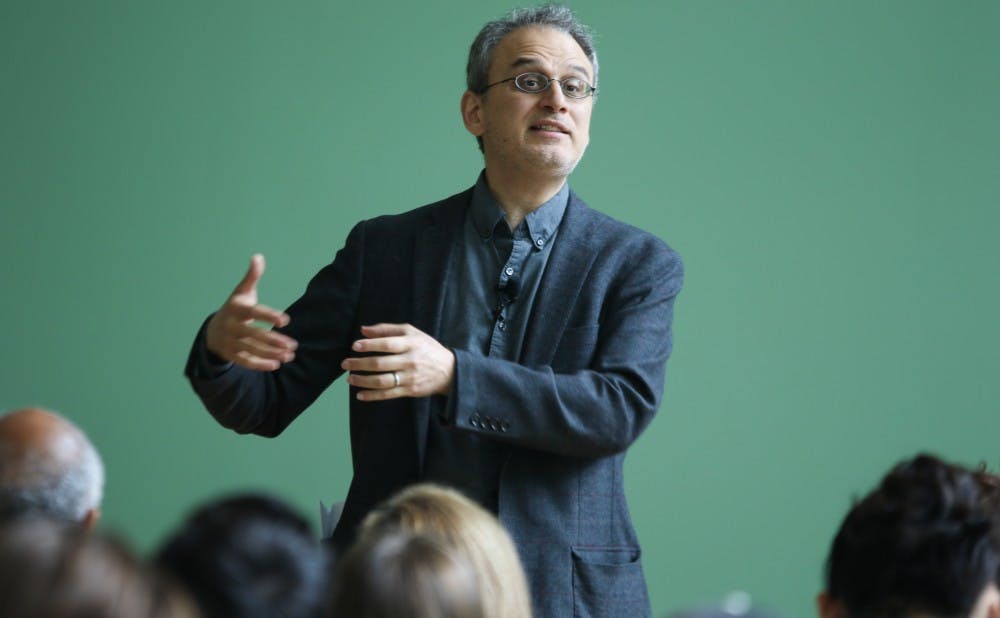The liberal arts education has lost its way, and so has America’s latest generation of college students, according to author William Deresiewicz.
Hosted by the Kenan Institute for Ethics, Deresiewicz—an essayist and literary critic—discussed the problems that plague elite colleges around the nation during a talk Tuesday. To Deresiewicz, college campuses are so ideologically polarized that they “subsume the totality of their members’ lives—like prisons, monasteries, mental hospitals or the military.”
“Students seldom disagree with one another anymore in class,” he said. “When they take up an issue in class, it’s not ‘let’s talk about issue X,’ but ‘let’s talk about why this position is the correct one to have on issue X.’”
He recounted the stories of various students, such as one at a women’s college in Southern California, who quickly learned “to keep quiet about her Christian faith and her non-feminist views about marriage,” and another, who was careful in framing his beliefs lest he be “branded as a racist [for] challenging the reigning dogma” of progressive opinion.
Such homogeneity of ideas is a recent trend, Deresiewicz said, citing his own experience as a student at Columbia University in the 1980s.
“A wide range of disagreement prevailed…Trotskyites argued with social democrats, trade-union liberals with anarcho-syndicalists, reformists with revolutionaries,” he said. “There were Maoists running around, and Spartacists, and all kinds of exotic animals in the Marxist menagerie.”
The main difference between then and now, he said, is the purpose of a liberal arts college.
He said the objective of college is to question your goals and values and assumptions and to realize how to be wrong—or how “to teach you to think.” Whereas, the aim of a liberal arts education is to pursue knowledge not for some vocational, utilitarian goal—like money or a career or “building a better world”—but for its own sake.
Deresiewicz said this kind of liberal arts education is what is missing today among elite college students, the “whiz kids” in Silicon Valley and many Asian countries.
He pointed out how other countries are beginning to adopt traditional American liberal arts education, but that the United States should not lose sight of its original education mission.
“You know what this tells me?” Deresiewicz said. “Yale in Singapore, Duke in China—the rest of the world has figured out that what makes the American economy dynamic is the liberal arts. But we’re shedding the liberal arts as fast as we can, because we want to be more like China and Singapore.”
Get The Chronicle straight to your inbox
Signup for our weekly newsletter. Cancel at any time.

